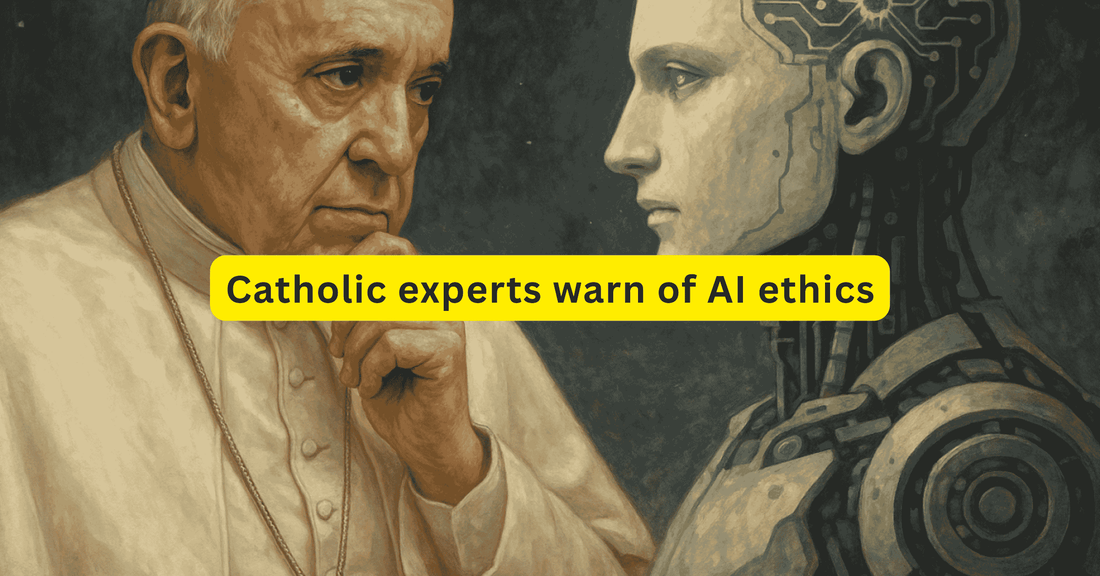AI resurrections: Catholic experts warn of ethical issues
Isabelle DuboisCatholic experts warn AI resurrections raise ethical issues, potentially prolonging grief and disrespecting the dead.

The rise of artificial intelligence has enabled "digital resurrection," a technology that creates lifelike avatars of deceased individuals. These AI resurrections raise ethical questions and may prolong the grieving process, according to Catholic experts.
The technology walks a fine line between honoring and potentially betraying individuals.
Highlights
- AI resurrections raise ethical concerns about consent and respect for the dead.
- Experts warn that AI avatars could hinder the grieving process and isolate bereaved individuals.
- The Catholic faith emphasizes respect for the dead and the importance of not confusing computers with people.
Read More: Xbox to be like Office: Everywhere, says Nadella
Top 5 Key Insights
• Ethical Concerns: Creating digital likenesses of deceased individuals without their explicit consent raises significant ethical issues regarding autonomy and privacy. This is particularly concerning as the deceased cannot provide consent.
• Impact on Grieving: Interacting with AI avatars of deceased loved ones can create a persistent presence that is not based in reality, potentially hindering the grieving process. This may further isolate bereaved individuals at a time when social support is crucial.
• Instrumentalization of Memory: Using AI to recreate deceased individuals could lead to the instrumentalization of memory, where the AI representation may not accurately reflect the person's true self or wishes. There is a risk of violating the respect owed to the dead and future generations.
• Digital Scrapbook vs. Resurrection: While AI can assist in creating a digital scrapbook of a lost loved one, it is crucial not to confuse computers with people. The term "digital resurrection" is a misnomer and a mockery of the true meaning of resurrection.
• Need for Discernment: As AI technology becomes more advanced, it is essential to approach its use with caution and discernment, recognizing the potential psychological and emotional impacts. Public awareness and dialogue are necessary to ensure AI supports, rather than undermines, the grieving and remembrance process.
Read More: Jessica Alba's Net Worth: Acting, Business & Real Estate
Expert Insights
D. Steven Long, Theology Professor at Marquette University: "It's not good to think that we can digitally resurrect people. That's the completely wrong terminology. It's a mockery of the word 'resurrection,' and it shouldn't even be used."
Terence P. McKiernan, director of the Center for Applied Ethics at the University of Notre Dame: "We owe respect to the dead. We owe respect to future generations."
Read More: AI Search Engines Favor Less Popular Sources: Study
Wrap Up
The use of AI to recreate deceased individuals presents complex ethical and emotional challenges. While such technology may offer comfort to some, it is crucial to consider the potential impact on the grieving process and the importance of respecting the dignity of the deceased.
Thoughtful consideration and ongoing dialogue are necessary to navigate these issues responsibly.
Read More: Trump's $80B Nuclear Reactor Plan Fuels AI Ambitions
Author
Isabelle Dubois - A respected cultural critic and arts journalist based in Paris, with a profound understanding of global artistic movements. She offers insightful commentary on arts, culture, and their relationship with society for Enlightnr.
More to Explore
- Choosing a selection results in a full page refresh.
- Opens in a new window.




